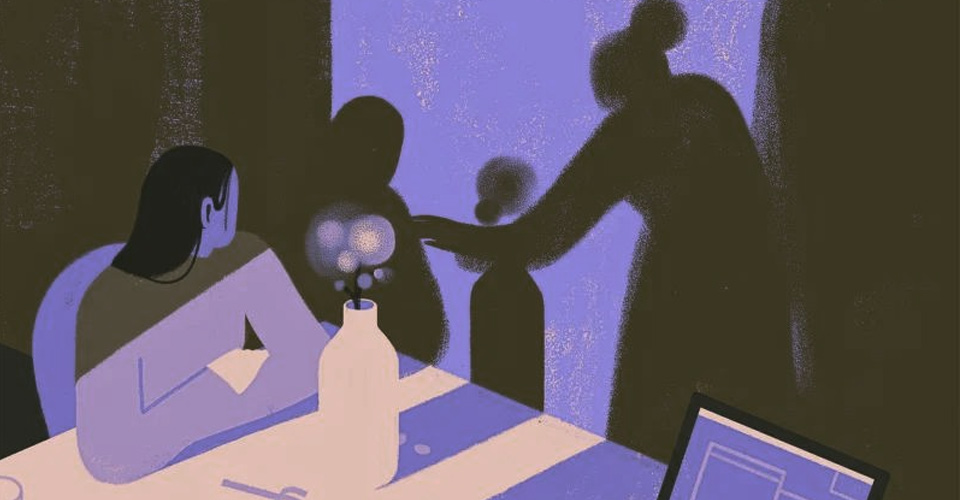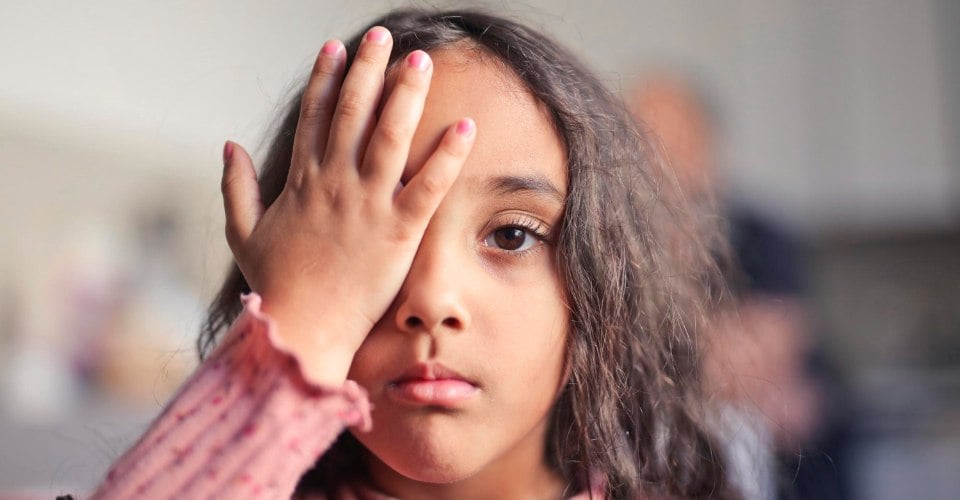Grief and loss are deeply impactful experiences that can disrupt our emotional balance, often leaving us feeling disoriented and overwhelmed. Whether it’s the passing of a loved one or the conclusion of a significant life chapter, navigating grief can be a challenging and personal journey.
The process of grieving is different for everyone, and there is no single correct way to cope with grief and loss. However, understanding how to deal with grief and loss in healthy, constructive ways can provide individuals with the support they need to move toward healing and eventual acceptance. Recognizing the signs of grief and loss and learning strategies to cope with grief and loss can significantly ease the emotional burden, offering a path to recovery.
Signs of Grief and Loss
Feeling Overwhelmed: Intense, unshakable sadness that feels difficult to manage or understand.
Emotionally Numb: A sense of detachment from emotions, as though they have shut down completely.
Struggling to Accept: Difficulty in coming to terms with the reality of the loss, unable to believe it has happened.
Physical Discomfort: Grief can manifest physically, causing headaches, stomachaches, nightmares, or extreme fatigue and oversleeping.
Anger or Guilt: Experiencing feelings of anger toward oneself, others, or even the person who has passed, often accompanied by guilt over unresolved emotions.
Loss of Interest: A noticeable lack of interest in activities once enjoyed, leading to a sense of apathy or lack of motivation.
Difficulty Concentrating: Struggling to stay focused or recall information due to the emotional toll of grief.
Withdrawing from Others: A desire to be alone, avoiding social situations, and disconnecting from loved ones.
Emotional Outbursts: Unpredictable emotional reactions such as anger, tears, or overwhelming emotions.
Questioning Beliefs: A period of self-reflection, where personal beliefs are reexamined, often in search of meaning or purpose following the loss.
Understanding how to deal with grief and loss involves recognizing these signs of grief and loss and learning how to cope with grief and loss effectively.
Dealing With Grief And Loss
1. Seek Support from Loved Ones:
Reaching out to family and friends can provide essential comfort and understanding during difficult times. Knowing how to deal with grief and loss often involves leaning on loved ones for support.
Family and friends offer empathetic listening, compassion, and understanding, creating a safe environment where the bereaved can express their emotions without judgment. A supportive network can bring much-needed comfort, reminding the grieving person that they are not alone in their pain.
For instance, after the loss of a pet, talking to close friends who have experienced a similar loss can be incredibly helpful. Sharing feelings of grief and memories with those who understand can create a compassionate space for emotional expression, fostering connection and support during this challenging time.
2. Join a Support Group:
Connecting with others who have experienced similar losses can be an essential part of learning how to deal with grief and loss. In a support group, individuals have the opportunity to share their emotions, thoughts, and personal stories with others who truly understand the depth of their feelings. This shared experience can be incredibly comforting for those struggling to cope with grief and loss.
Being part of a support group offers a strong support system and a non-judgmental space where individuals can freely express themselves. This environment helps those grieving to find solace, comfort, and healing as they navigate their emotions.
For instance, joining a support group for parents who have lost a child can provide a safe space for sharing feelings and discussing coping strategies. The unique bond formed by the shared experience of losing a child fosters deep empathy and compassion, helping members understand the signs of grief and loss in a meaningful way.
3. Engage in Mindfulness and Meditation:
Mindfulness and meditation are powerful techniques for processing emotions, especially when learning how to deal with grief and loss. Mindfulness involves being fully present in the moment, observing your emotions without judgment, and allowing them to flow naturally. By practicing mindfulness, individuals can better understand the signs of grief and loss and learn how to manage them effectively.
Meditation, in turn, promotes relaxation and inner calmness, creating a space to process complex emotions. By incorporating mindfulness and meditation into daily routines, individuals can develop important coping mechanisms and find comfort amid the emotional turbulence of grief, facilitating healing and emotional well-being.
For example, after losing a job, practicing mindfulness can help cope with grief and loss by managing stress and anxiety throughout the job search process. Mindfulness enables individuals to approach the search with a calmer, more focused mindset, making it easier to cope with the emotional highs and lows of the journey while maintaining a positive outlook. It also builds resilience, helping individuals overcome setbacks and rejections with a greater sense of determination.
4. Create a Memory Box:
Creating a memory box is a deeply meaningful and therapeutic approach to cope with grief and loss. This activity involves gathering treasured mementos, such as photographs, letters, and sentimental items, which can serve as a tangible representation of the memories shared with a lost loved one.
For example, collecting photographs, letters, and small keepsakes of a loved one can offer comfort during the grieving process. These tangible reminders of precious moments and meaningful interactions help the bereaved stay connected to their loved one, even in their absence. Looking through these items can trigger fond memories, moments of laughter, and tears, providing a sense of closeness and solace in the face of grief and loss. This simple act can be a powerful way to understand how to deal with grief and loss while recognizing the signs of grief and loss, making it easier to cope with grief and loss over time.
5. Write in a Journal:
Maintaining a grief journal can be a therapeutic and healing approach for those learning how to deal with grief and loss. By recording their experiences with grief, individuals may uncover patterns, gain insights, and experience personal growth, which can support their journey toward healing.
For instance, after the loss of a spouse, writing down thoughts, feelings, and memories can help in understanding the signs of grief and loss and provide an outlet for emotional expression. This practice encourages the bereaved to cope with grief and loss in a healthy and constructive manner, while also allowing moments of gratitude to emerge even amid pain.
6. Volunteer or Give Back:
Volunteering or giving back is a meaningful way to cope with grief and loss, offering an opportunity to transform pain into acts of compassion and service. By dedicating time and energy to helping others, individuals can find a sense of purpose and fulfillment, even amidst their own grief. Engaging in altruistic activities not only provides a positive outlet for emotions but also fosters a sense of connection to the community.
For example, after experiencing significant loss, volunteering at a local shelter or participating in a charity event can bring joy by making a meaningful difference in others’ lives. This act of giving back not only helps those in need but also serves as a source of healing and empowerment, encouraging individuals to find hope and strength while dealing with grief and loss. It can also serve as a reminder of the importance of community and support during difficult times.
7. Seek Professional Counseling:
Consider reaching out to a mental health professional when learning how to deal with grief and loss. Grief counselors provide a safe, non-judgmental space for individuals to express their emotions, fears, and struggles. This professional support is crucial in understanding the signs of grief and loss and developing effective ways to cope with grief and loss.
Grief counselors offer personalized strategies and coping techniques to help individuals through the grieving process. They provide valuable insights and tools that promote emotional healing and well-being. For instance, after the death of a sibling, a grief counselor can offer specific support and coping strategies tailored to individual needs. Their guidance can be essential in navigating the challenging journey of sibling loss, fostering healing and resilience.
8. Participate in Rituals:
Engage in cultural or personal rituals to honor the deceased. These rituals, whether grounded in cultural traditions or personally meaningful, provide a significant space to express grief, love, and respect for the departed. Participating in such rituals can help cope with grief and loss by fostering a sense of connection and continuity with the person who has passed away. This creates a bridge between the past and the present, aiding in the healing process.
For example, attending memorial services or organizing a special remembrance ceremony can be a helpful way to deal with grief and loss. These gatherings create a space for family and friends to come together, share memories, and celebrate the life of the departed, offering both closure and emotional healing.
9. Embrace Nature:
Embracing nature can be an incredibly healing and restorative practice when learning how to deal with grief and loss. Immersing yourself in the natural world creates a tranquil and soothing environment, helping to alleviate the heaviness of grief and loss.
Whether it’s a quiet walk in the park, sitting by a peaceful lake, or hiking through the mountains, nature offers a calming sanctuary to reflect, process emotions, and discover inner resilience.
For instance, after experiencing a miscarriage, spending time in nature can support individuals in coping with grief and loss. The serene beauty and peacefulness of natural settings provide a gentle, nurturing space to process emotions and find comfort during difficult times.
10. Engage in Creative Expression:
Creative expression can serve as a powerful and therapeutic outlet for processing emotions and learning how to deal with grief and loss. Activities like creating visual art, composing music, or journaling offer a safe space to explore and release difficult emotions, such as pain, anger, or sadness.
For instance, when experiencing the loss of a close friend, individuals may find comfort and healing through creative outlets like writing a heartfelt letter or composing a poem. Writing offers a therapeutic way to express deep emotions, treasured memories, and signs of grief and loss, helping them cope with grief and loss more effectively.





















